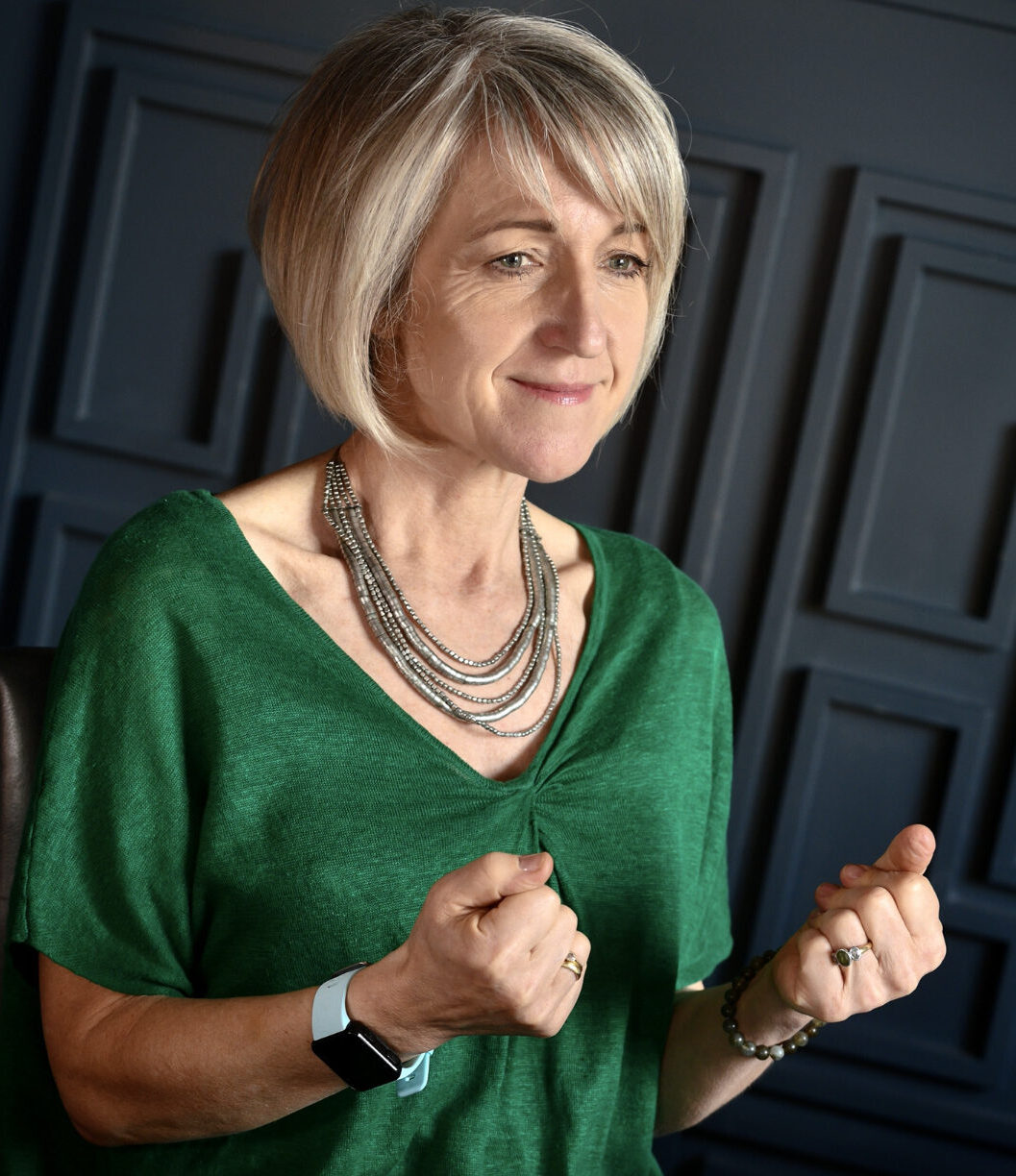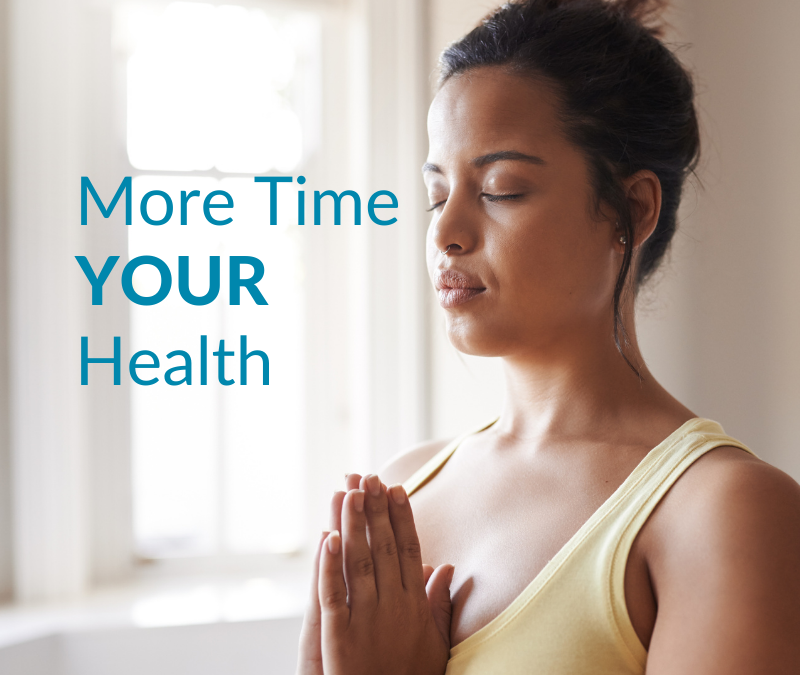How To Make More Time To Look After Your Health
According to the Oxford English Dictionary, ‘time’ is the most used noun in the English language. Our lives are dominated by the clock. You only have to listen to the way we talk about time to understand how time affects us. We say that time is money, we can spend time or waste time, we race against time and frequently run out of time, when we’re not working, we call it ‘free-time’ and we often find there is not enough time for our basic health requirements such as exercise, home cooking, meditation and sleep.
Because time has become a commodity in society, we often feel pressured to ‘spend’ all our time working and can feel that time looking after ourselves is somehow ‘wasted’. If this resonates with you, perhaps it’s ‘time’ to re-evaluate and start to invest ‘time’ in your own wellbeing.


Me Time
Finding the space in our lives to look after ourselves should be a priority. Why is it that we often feel obligated to relegate our health and wellness to the bottom of the list? What ought to be fundamental, gets pushed further and further down until eventually it falls off altogether and we no longer have time to relax, cook healthy meals, eat mindfully or get enough sleep.
Time to Meditate
My clients frequently tell me they struggle to find ten minutes to meditate. And yet, ironically, the people with the least time are usually the ones most in need of some time-out to meditate.
Taking ten to twenty minutes out of your busy schedule to find stillness and peace has fabulous health benefits. Meditation is the best way to deal with the stress in our lives. Spending just ten minutes a day practicing meditation can help you find calm and inner peace. Anyone can do it, it’s completely free and it can help with medical conditions such as:
- Anxiety
- Chronic pain
- Depression
- Headaches
- Heart disease
- High blood pressure
- IBS
If you find it difficult to meditate, just remember that it is a ‘practice’ and the more you practice, the better you will get. There are many different types of meditation, so do some research and find a form of meditation that feels right for you. There are literally hundreds of guided meditations online that you can try. And remember, don’t stress yourself out trying to ‘clear your mind’ and ‘get it right’, just sit still, focus on your breath and relax.
Another technique to help with relaxation is mindfulness, which just means really enjoying the moment that you’re are in. Mindful eating can help with stress and weight loss. Next time you’re enjoying a meal, try to appreciate the visual appearance of the food, the aroma and the combination of tastes. Make sure you concentrate on the food and avoid watching TV or checking your phone whilst eating.
Do you find yourself time-travelling? And by that, I mean, worrying about the future or going over events in the past. Whenever you find yourself doing this, bring yourself back into the moment and start to appreciate the here and now.

Time to Cook
If you struggle to find the time to cook a healthy meal from scratch, remember that planning and prepping is the key. Sit down at the weekend and write out a menu for the week. Include breakfast and lunch. Make a shopping list from that menu and stick to it. Shopping with a list will help you to:
- Save money
- Prevent food waste
- Stop you from impulse buying unhealthy food
- Prevent you from making multiple trips to the shops
Prepare as much food as you can in advance, chop up some vegetables and fruit for snacking, or make soup ahead of time. Batch cook, so you always have some healthy options in the freezer for emergencies.
There will always be days when things don’t work out and you have to grab something quick. If this happens, don’t beat yourself up. It’s what you do ‘most of the time’ that counts!
For more information on how to optimise your life check out my blog from a couple of months ago…
Time to Exercise
There’s no two ways about this; bodies are meant to move. If you spend hours every day in a car, at a desk and watching TV from the comfort of your sofa, you are putting your health at risk. You may have heard the expression ‘sitting is the new smoking’ (coined by the cardiologist Dr James Levine) and it’s no exaggeration. Sitting down for long periods can increase your risk of cancer, type 2 diabetes and heart disease. So, how can you combat the dangers of a sedentary life when ‘time’ is short? The answer is to plan and prioritise.
If you have a type of exercise that you love, prioritise it. Put it in your diary and plan for it as you would plan for any work based activity. If you love fitness classes, yoga or visiting the gym, get your gear ready the night before so you’re ready to go. Apply the same technique if you enjoy getting out for a run.
If you haven’t found a type of exercise that you like, try something new and see what fits. In the meantime, try these tips to get yourself moving more:
- Invest in a standing desk
- Attend zoom meetings on a walking treadmill
- Park further from your destination and walk a little more
- Always take the stairs
- Set an alarm to stand or move every 30 minutes
- Have walking meetings

Time for Sleep
Do you find yourself going to bed late during the week, missing out on sleep and then lying in at the weekends? This is a habit that many people have when they lead busy, stressful lives. Going to bed at the same time and getting up at the same time every day has great benefits. It will help you to get better quality sleep as well as sleeping at least seven hours a night. Lack of sleep can lead to obesity, anxiety, high blood pressure and diabetes.
If you struggle to get to bed on time, try to implement a bedtime routine.
- Set an alarm for an hour before you want to go to sleep.
- Make a drink of herbal tea to help you sleep and avoid alcohol.
- Avoid screens such as the TV, laptop or phone.
- Relax and read a book in bed.
- Keep your bedroom cool as this will help you sleep better.
People who have consistent bedtimes have improved memory, more focus and cope better with stress. Again, this is about what you do ‘most of the time’. You don’t have to be perfect, and the occasional late night won’t harm you. But as your granny might have said, ‘Early to bed, early to rise, makes you healthy, wealthy and wise.’ I can’t guarantee the ‘wealth’ but you should certainly enjoy better physical and mental health from a consistent bedtime routine.

Book a FREE Curiosity call today
We can cover anything you would like to talk about and explore anything that is worrying you.
Book your place today and we can start your journey to a better future.
Make sure you are following me for all updates,
don’t forget to say hi!


Recent Comments